Japan has been actively supporting development in Africa, highlighted by hosting the ongoing Tokyo International Conference on African Development (TICAD) series since 1993. Africa has enjoyed steady economic growth since 2000, and JICA aims to further drive this progress by promoting innovative solutions that look beyond existing systems and conventions. With a collaborative mindset, JICA is drawing on Japan's scientific and technological might to help drive Africa's future socioeconomic development.
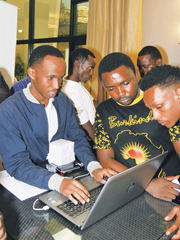
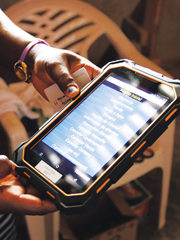
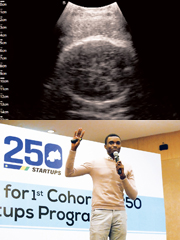
What is Innovation?
"Innovation" can be defined as finding new ways of applying resources, labor, or means of production to create new value. In developing countries, this might mean exploring unconventional solutions to social problems by applying new techniques to old ways of thinking and acting, and by applying ICT and other new technologies to create fresh solutions.
Innovation is about...
- Producing new products/services
- Finding new markets
- Introducing new production methods
- Acquiring new sources of raw materials or semi-manufactured goods
- Achieving new organizational structures (forming or breaking up monopolies)
Innovation was first conceptualized by the Austrian economist Joseph Schumpeter. According to Schumpeter (1911), any innovation can be placed into one of the above categories.
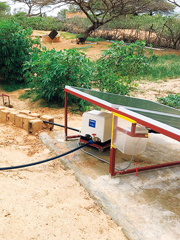
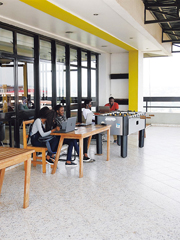
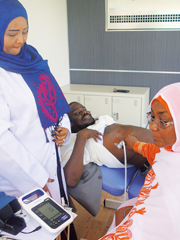
In 2015, the United Nations adopted the 17 Sustainable Development Goals (SDGs) in an effort to tackle the world's problems by 2030. Although aid projects in developing countries are traditionally the domain of governments, it is keenly expected that NGOs and the private sector will actively participate in realizing the SDGs. Hopes are high that this public-private collaboration will generate innovative solutions to help transform societies.
Against such a background, new businesses in Africa are beginning to make innovative use of Information and Communications Technology (ICT). A salient example is M-Pesa in Kenya. M-Pesa is an electronic money transfer service that enables people to send and receive money—even when they lack the income to open a bank account—as long as they have an ID and mobile phone. This innovative service has attracted worldwide attention, and is considered a revolutionary way to empower vast numbers of people to conduct financial transactions. M-Pesa was introduced in 2007, and currently handles annual volume of currency transactions equivalent to nearly 50% of Kenya's GDP.
Meanwhile in Rwanda, an innovative blood transport service using drones appeared in 2016. Medical supplies that previously took hours to be delivered from the capital city to regional medical centers by land can now be delivered by a drone within a matter of minutes.
JICA Senior Advisor for ICT and Innovation Tomoyuki Naito provides insight into why such innovations are appearing in Africa.
"The scarcity of regulations and systems in developing countries has given an edge to innovations that use digital technology. Mobile phones and broadband internet have come to be widely available in developed countries since 2000, and subsequently have spread globally. Now, even in Africa, digital technology is becoming an important part of everyday life. In Kenya, it was proving time-consuming and costly to expand the landline telephone system; in the meantime, private enterprises developed the ‘M-Pesa' service, which operates wirelessly. In Rwanda, deliveries by drone were possible because the government prioritized problem-solving, and their aviation regulations were considerably more lenient than those of developed countries."
The scope for new business in Africa has expanded following these successes, and now companies and investors all over the world are looking to Africa for opportunities. This has resulted in a leapfrog effect, where solutions to hard-to-solve social problems were found and development has been accelerated by using ICT to bypass the lengthy traditional steps of development.
"A major role is being played by the youth—the so-called ‘Digital Natives.' They are communicating with the rest of the world, sharing ideas, and starting businesses not geographically limited to their own countries, but also within Africa, Asia or anywhere else. The number of ‘Tech Hubs,' where startups and other new businesses can develop, has increased by approximately 50 percent to over 400 between 2016 and 2018. In Rwanda, which is committed to becoming an ICT-oriented country, JICA is helping to create new businesses by supporting projects such as the incubator (facility) ‘kLab,' which is fostering and supporting new digital businesses."
Instead of just using new technology, innovation may create new value by integrating existing, proven solutions and ideas. JICA promotes the use of ultrasound echo machines (see p.10) in Sudan, and projects using solar-powered pumps in Senegal to just this effect. In addition, JICA is working to foster the human resources necessary to produce innovative solutions in the future.
JICA continues to cooperate in these fields on many levels, and with the same "leave no one behind" commitment as outlined in the SDGs.
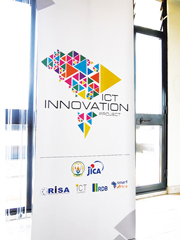
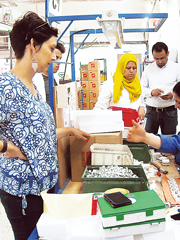
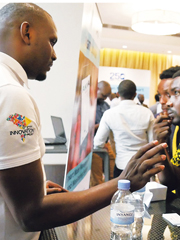
Resource Person
Tomoyuki Naito
JICA Senior Advisor for ICT and Innovation. Previous positions include JICA Director of Transportation and ICT, and Program Manager for the World Bank. Currently a member of the World Economic Forum's "Internet for All" global steering committee, and a member of the Ministry of Internal Affairs and Communications' Global Strategy Working Group.





scroll